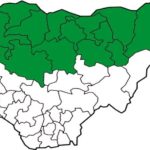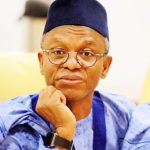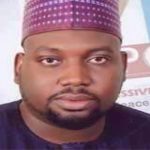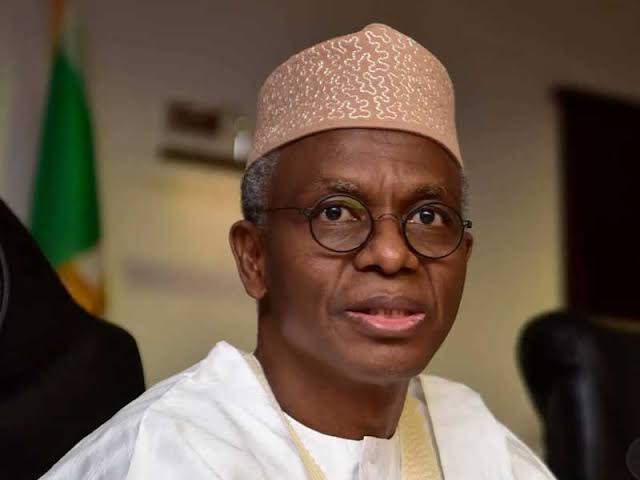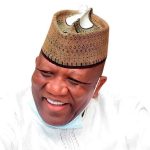By: Shu’aibu Usman Leman
Malam Nasir Ahmad el-Rufai recently marked his 65th birthday, an occasion celebrated by President Bola Tinubu, who commended his contributions to the All Progressives Congress (APC) and his tenures as Governor of Kaduna State, Director-General of the Bureau of Public Enterprises, and Minister of the Federal Capital Territory (FCT). While these acknowledgements rightly recognise his significant impact on Nigerian governance, they often obscure the complex and contentious nature of el-Rufai’s public persona.
Nasir el-Rufai has fostered an image of a resolute and effective leader, an impression bolstered by his autobiography, ‘The Accidental Public Servant.’ However, this carefully crafted persona is frequently at odds with substantiated evidence of his intolerance towards dissenting opinions and his fractious relationship with the media. This tension transcends mere anecdotal accounts, being deeply rooted in his professional trajectory. Significant episodes, such as the eviction of the Nigeria Union of Journalists (NUJ) National Secretariat from their Area 11 Garki Abuja premises during his tenure as Minister of the Federal Capital Territory, and the subsequent harassment, intimidation, and arrests of journalists during his governorship, contribute to a concerning pattern. A particularly egregious example is the case of Luka Binniyat, a journalist detained for several months for reporting on insecurity within Kaduna State. Furthermore, during el-Rufai’s governorship, Reporters Without Borders classified Nigeria as the most perilous nation for journalists in West Africa, explicitly citing persecution by state governors. This context casts a significant pall over el-Rufai’s legacy, raising serious questions about his commitment to freedom of the press and the tolerance of critical viewpoints.
His administration drew considerable scrutiny when the Nigeria Union of Journalists, in 2017, declared that journalists based in Kaduna were living in fear. The National Secretariat of the Nigeria Union of Journalists raised concerns that journalists practising in Kaduna state were living in fear of potential intimidation and harassment in the course of their duties. The then National Secretary of the body, Shu’aibu Usman Leman had issued a statement to journalists in Abuja following an attack by hoodlums on journalists and senior members of the All Progressives Party at a press conference in Kaduna. The statement read: “Certain desperate politicians, intent on undermining journalism and journalists in Kaduna State, have continued their nefarious actions against the media. The latest development is deeply alarming to the union, as it clearly indicates that such attacks on the media are unlikely to cease. Political thugs, sponsored by dangerously reckless members of a political party, invaded the Press Centre, the venue of a press briefing by APC members of the National Assembly, and attacked both journalists and politicians, destroying media equipment and inflicting bodily harm on some journalists. We regret to note that Kaduna State is regrettably acquiring notoriety as the most dangerous state for journalists in Nigeria to operate, with increased harassment of journalists and heightened repression of press freedom.
“As professionals whose responsibility is to monitor governance and hold the government accountable to the public, journalists now live in constant fear of being arrested by security personnel or attacked by unidentified assailants without just cause. It is worth noting that press freedom is essential for achieving a credible democracy, and this freedom includes the right to seek and receive information from all available sources to enable the formulation of informed opinions, and to communicate these opinions through any feasible means. These attacks, we believe, are intended to curtail such freedoms. In light of these persistent attacks and intimidation of journalists, we once again call upon the police and other state agents to immediately prioritise the security and safety of journalists, not only in Kaduna State but throughout the country, as critical components of their programmes.”
Recently, el-Rufai alleged a politically motivated campaign to force him into exile, claiming intimidation and threats of arrest. While there may be some truth to this, it raises questions about his potential use of victimhood to deflect criticism and shape the narrative surrounding his actions. His vocal critiques of his successor in Kaduna State and the Tinubu administration further complicate matters, suggesting a desire to maintain influence in Nigerian politics, if not direct power.
Perhaps the most glaring contradiction in el-Rufai’s career lies in his pursuit of legal recourse regarding his fundamental right to a fair hearing amidst corruption allegations, even as his past actions suggest a willingness to deny such rights to others. Allegations of embezzling N432 billion during his governorship, which he is now contesting in court, underscore this double standard, prompting serious questions about his commitment to justice, transparency, and human rights.
In a significant political shift, Nasir el-Rufai, a founding member of the APC, has defected to the Social Democratic Party (SDP). On his X account, he expressed growing dissatisfaction with the APC’s current leadership, citing a significant divergence between his personal principles and the party’s direction as the catalyst for his departure. Reflecting on his involvement with the APC since its formation in 2013, el-Rufai characterised the party’s early days as a successful unification of diverse political factions. However, he expressed disappointment that recent developments revealed a disconnect between the APC’s founding ideals and its current leadership.
“Despite my hopes that my values would align with those of the APC over the years, I have come to realise that the party does not prioritise addressing its challenges,” he stated. El-Rufai shared concerns both privately and publicly about the party’s departure from the progressive vision that inspired his initial involvement. “As a founder, it is painful to witness the party deviate from the ideals we championed,” he noted, reaffirming his commitment to democratic principles and nation-building as evidenced by his support during the party’s electoral victories in 2015, 2019, and 2023.
In his resignation letter, el-Rufai confirmed his transition to the SDP following discussions with mentors, colleagues, and supporters. He expressed that this decision is not merely personal; rather, it aims to foster collaboration among opposition leaders to establish a united front against the APC in the lead-up to the 2027 general elections. He called on his supporters and fellow Nigerians to join him in this mission, aspiring to restore Nigeria’s reputation as a source of pride within Africa and the global black community. Notably, el-Rufai has previously criticised the APC leadership for failing to convene essential meetings, including a poorly scheduled stakeholders’ gathering at the Presidential Villa. Prior to his defection, he visited influential political figures such as former Minister Rauf Aregbesola and Pastor Tunde Bakare, fuelling speculation about potential strategic alliances for the impending electoral cycle.
The relationship between former Governor el-Rufai and President Bola Ahmed Tinubu’s administration has become a focal point in the shifting Nigerian political landscape. El-Rufai’s exclusion from the cabinet has ignited discussions regarding his motivations and criticisms, illuminating the complex political narratives shaped by both achievements and discontent in his governance approach. Bayo Onanuga, Special Adviser to President Tinubu on Information and Strategy, suggested that el-Rufai’s vocal critiques stem from an injured political ego due to his absence in the cabinet, interpreting the former governor’s grievances as a reflection of disappointment and advising him to move on rather than dwell on “spilt milk.”
El-Rufai’s political career is characterised by this inherent complexity, acknowledged for his substantial contributions to the APC while simultaneously employing a governance style that frequently suppressed dissenting voices. Celebrations marking his 65th birthday highlighted this dichotomy, juxtaposing his achievements in infrastructure and education against controversies surrounding his treatment of opposition voices.
Today, el-Rufai’s allegations against President Tinubu – including claims of politically motivated marginalisation – underscore a personal and ideological fracture. His ongoing critiques of the Tinubu administration, coupled with legal battles surrounding allegations of financial misconduct during his governorship, highlight a broader struggle for relevance within the APC amidst mounting tensions.
While acknowledging el-Rufai’s past contributions to the party’s electoral successes, Onanuga cautioned against allowing grievances to disrupt government operations, reflecting a desire for unity among party members despite diverging trajectories.
Nasiru el- Rufai , is widely recognised for his controversial statements and actions. His recent defection from the All Progressives Congress (APC) to the Social Democratic Party (SDP) exemplifies his unpredictable political trajectory. El-Rufai had previously threatened to take legal action against those alleging that he was planning to leave the APC, only to later reverse course and officially join the SDP earlier this month. This sudden shift has elicited mixed reactions: while some criticise him for his inconsistency, others view it as a savvy political strategy.
Described as emotional, impulsive, and brash , El-Rufai’s leadership style has often been contentious. His tenure as Governor was marred by significant controversies, particularly regarding his management of religious and ethnic tensions within the state.
Although he has garnered a base of supporters, El-Rufai’s erratic and frequently divisive actions have raised questions about his suitability as a political leader. As some observers have noted, a politician of his calibre can often be perceived as more of a liability than an asset.
This sentiment emphasises the overarching challenges the APC faces in unifying its constituents around a common vision. As Nigeria confronts the ramifications of el-Rufai’s administration, it becomes essential to reaffirm principles of transparency and accountability. The governance style emblematic of his tenure warrants reflection and scrutiny, providing vital insight for future leadership that champions citizen engagement and trust. Ultimately, the interrelationship between political figures, their legacies, and the electorate underscores the necessity for accountability in Nigeria’s democracy.
El-Rufai’s career exemplifies both effective governance and serves as a cautionary tale, underscoring the imperative balance between efficiency and justice alongside respect for citizens’ rights. As political manoeuvring continues, el-Rufai’s assessment of his role in contemporary discourse raises pertinent questions for both him and the Tinubu administration. Navigating this multifaceted landscape – characterised by high expectations, disappointments, and the enduring hope for more open and accountable governance – will be crucial in shaping Nigeria’s democratic future. Increasing attention to these intricate dynamics not only reflects on the past but also shapes the political engagement trajectory leading into future elections.
As Governor Uba Sani and other leaders grapple with the complexities of governance inherited from el-Rufai’s administration, they would benefit from prioritising active listening, transparency, accountability, and open communication – principles often disregarded during el-Rufai’s tenure and vital for rebuilding public trust. Ultimately, the responsibility for holding leaders accountable rests with the citizenry. Through informed dialogue, active electoral participation, and the vigilant safeguarding of democratic principles, citizens can ensure power is exercised responsibly and in the public interest. El-Rufai’s legacy – a complex interplay of achievements and controversies – serves as both a case study and a cautionary tale for those in positions of power, reminding us that true leadership demands not only competence but also an unwavering commitment to justice, fairness, and the rights of all.
Shu’aibu Usman Leman is a former National Secretary, Nigeria Union of Journalists, shuaibuusmanleman@yahoo.com
The el-Rufai Enigma: Achievements, Controversies, and Political Shifts
By: Shu’aibu Usman Leman
Malam Nasir Ahmad el-Rufai recently marked his 65th birthday, an occasion celebrated by President Bola Tinubu, who commended his contributions to the All Progressives Congress (APC) and his tenures as Governor of Kaduna State, Director-General of the Bureau of Public Enterprises, and Minister of the Federal Capital Territory (FCT). While these acknowledgements rightly recognise his significant impact on Nigerian governance, they often obscure the complex and contentious nature of el-Rufai’s public persona.
Nasir el-Rufai has fostered an image of a resolute and effective leader, an impression bolstered by his autobiography, ‘The Accidental Public Servant.’ However, this carefully crafted persona is frequently at odds with substantiated evidence of his intolerance towards dissenting opinions and his fractious relationship with the media. This tension transcends mere anecdotal accounts, being deeply rooted in his professional trajectory. Significant episodes, such as the eviction of the Nigeria Union of Journalists (NUJ) National Secretariat from their Area 11 Garki Abuja premises during his tenure as Minister of the Federal Capital Territory, and the subsequent harassment, intimidation, and arrests of journalists during his governorship, contribute to a concerning pattern. A particularly egregious example is the case of Luka Binniyat, a journalist detained for several months for reporting on insecurity within Kaduna State. Furthermore, during el-Rufai’s governorship, Reporters Without Borders classified Nigeria as the most perilous nation for journalists in West Africa, explicitly citing persecution by state governors. This context casts a significant pall over el-Rufai’s legacy, raising serious questions about his commitment to freedom of the press and the tolerance of critical viewpoints.
His administration drew considerable scrutiny when the Nigeria Union of Journalists, in 2017, declared that journalists based in Kaduna were living in fear. The National Secretariat of the Nigeria Union of Journalists raised concerns that journalists practising in Kaduna state were living in fear of potential intimidation and harassment in the course of their duties. The then National Secretary of the body, Shu’aibu Usman Leman had issued a statement to journalists in Abuja following an attack by hoodlums on journalists and senior members of the All Progressives Party at a press conference in Kaduna. The statement read: “Certain desperate politicians, intent on undermining journalism and journalists in Kaduna State, have continued their nefarious actions against the media. The latest development is deeply alarming to the union, as it clearly indicates that such attacks on the media are unlikely to cease. Political thugs, sponsored by dangerously reckless members of a political party, invaded the Press Centre, the venue of a press briefing by APC members of the National Assembly, and attacked both journalists and politicians, destroying media equipment and inflicting bodily harm on some journalists. We regret to note that Kaduna State is regrettably acquiring notoriety as the most dangerous state for journalists in Nigeria to operate, with increased harassment of journalists and heightened repression of press freedom.
“As professionals whose responsibility is to monitor governance and hold the government accountable to the public, journalists now live in constant fear of being arrested by security personnel or attacked by unidentified assailants without just cause. It is worth noting that press freedom is essential for achieving a credible democracy, and this freedom includes the right to seek and receive information from all available sources to enable the formulation of informed opinions, and to communicate these opinions through any feasible means. These attacks, we believe, are intended to curtail such freedoms. In light of these persistent attacks and intimidation of journalists, we once again call upon the police and other state agents to immediately prioritise the security and safety of journalists, not only in Kaduna State but throughout the country, as critical components of their programmes.”
Recently, el-Rufai alleged a politically motivated campaign to force him into exile, claiming intimidation and threats of arrest. While there may be some truth to this, it raises questions about his potential use of victimhood to deflect criticism and shape the narrative surrounding his actions. His vocal critiques of his successor in Kaduna State and the Tinubu administration further complicate matters, suggesting a desire to maintain influence in Nigerian politics, if not direct power.
Perhaps the most glaring contradiction in el-Rufai’s career lies in his pursuit of legal recourse regarding his fundamental right to a fair hearing amidst corruption allegations, even as his past actions suggest a willingness to deny such rights to others. Allegations of embezzling N432 billion during his governorship, which he is now contesting in court, underscore this double standard, prompting serious questions about his commitment to justice, transparency, and human rights.
In a significant political shift, Nasir el-Rufai, a founding member of the APC, has defected to the Social Democratic Party (SDP). On his X account, he expressed growing dissatisfaction with the APC’s current leadership, citing a significant divergence between his personal principles and the party’s direction as the catalyst for his departure. Reflecting on his involvement with the APC since its formation in 2013, el-Rufai characterised the party’s early days as a successful unification of diverse political factions. However, he expressed disappointment that recent developments revealed a disconnect between the APC’s founding ideals and its current leadership.
“Despite my hopes that my values would align with those of the APC over the years, I have come to realise that the party does not prioritise addressing its challenges,” he stated. El-Rufai shared concerns both privately and publicly about the party’s departure from the progressive vision that inspired his initial involvement. “As a founder, it is painful to witness the party deviate from the ideals we championed,” he noted, reaffirming his commitment to democratic principles and nation-building as evidenced by his support during the party’s electoral victories in 2015, 2019, and 2023.
In his resignation letter, el-Rufai confirmed his transition to the SDP following discussions with mentors, colleagues, and supporters. He expressed that this decision is not merely personal; rather, it aims to foster collaboration among opposition leaders to establish a united front against the APC in the lead-up to the 2027 general elections. He called on his supporters and fellow Nigerians to join him in this mission, aspiring to restore Nigeria’s reputation as a source of pride within Africa and the global black community. Notably, el-Rufai has previously criticised the APC leadership for failing to convene essential meetings, including a poorly scheduled stakeholders’ gathering at the Presidential Villa. Prior to his defection, he visited influential political figures such as former Minister Rauf Aregbesola and Pastor Tunde Bakare, fuelling speculation about potential strategic alliances for the impending electoral cycle.
The relationship between former Governor el-Rufai and President Bola Ahmed Tinubu’s administration has become a focal point in the shifting Nigerian political landscape. El-Rufai’s exclusion from the cabinet has ignited discussions regarding his motivations and criticisms, illuminating the complex political narratives shaped by both achievements and discontent in his governance approach. Bayo Onanuga, Special Adviser to President Tinubu on Information and Strategy, suggested that el-Rufai’s vocal critiques stem from an injured political ego due to his absence in the cabinet, interpreting the former governor’s grievances as a reflection of disappointment and advising him to move on rather than dwell on “spilt milk.”
El-Rufai’s political career is characterised by this inherent complexity, acknowledged for his substantial contributions to the APC while simultaneously employing a governance style that frequently suppressed dissenting voices. Celebrations marking his 65th birthday highlighted this dichotomy, juxtaposing his achievements in infrastructure and education against controversies surrounding his treatment of opposition voices.
Today, el-Rufai’s allegations against President Tinubu – including claims of politically motivated marginalisation – underscore a personal and ideological fracture. His ongoing critiques of the Tinubu administration, coupled with legal battles surrounding allegations of financial misconduct during his governorship, highlight a broader struggle for relevance within the APC amidst mounting tensions.
While acknowledging el-Rufai’s past contributions to the party’s electoral successes, Onanuga cautioned against allowing grievances to disrupt government operations, reflecting a desire for unity among party members despite diverging trajectories.
Nasiru el- Rufai , is widely recognised for his controversial statements and actions. His recent defection from the All Progressives Congress (APC) to the Social Democratic Party (SDP) exemplifies his unpredictable political trajectory. El-Rufai had previously threatened to take legal action against those alleging that he was planning to leave the APC, only to later reverse course and officially join the SDP earlier this month. This sudden shift has elicited mixed reactions: while some criticise him for his inconsistency, others view it as a savvy political strategy.
Described as emotional, impulsive, and brash , El-Rufai’s leadership style has often been contentious. His tenure as Governor was marred by significant controversies, particularly regarding his management of religious and ethnic tensions within the state.
Although he has garnered a base of supporters, El-Rufai’s erratic and frequently divisive actions have raised questions about his suitability as a political leader. As some observers have noted, a politician of his calibre can often be perceived as more of a liability than an asset.
This sentiment emphasises the overarching challenges the APC faces in unifying its constituents around a common vision. As Nigeria confronts the ramifications of el-Rufai’s administration, it becomes essential to reaffirm principles of transparency and accountability. The governance style emblematic of his tenure warrants reflection and scrutiny, providing vital insight for future leadership that champions citizen engagement and trust. Ultimately, the interrelationship between political figures, their legacies, and the electorate underscores the necessity for accountability in Nigeria’s democracy.
El-Rufai’s career exemplifies both effective governance and serves as a cautionary tale, underscoring the imperative balance between efficiency and justice alongside respect for citizens’ rights. As political manoeuvring continues, el-Rufai’s assessment of his role in contemporary discourse raises pertinent questions for both him and the Tinubu administration. Navigating this multifaceted landscape – characterised by high expectations, disappointments, and the enduring hope for more open and accountable governance – will be crucial in shaping Nigeria’s democratic future. Increasing attention to these intricate dynamics not only reflects on the past but also shapes the political engagement trajectory leading into future elections.
As Governor Uba Sani and other leaders grapple with the complexities of governance inherited from el-Rufai’s administration, they would benefit from prioritising active listening, transparency, accountability, and open communication – principles often disregarded during el-Rufai’s tenure and vital for rebuilding public trust. Ultimately, the responsibility for holding leaders accountable rests with the citizenry. Through informed dialogue, active electoral participation, and the vigilant safeguarding of democratic principles, citizens can ensure power is exercised responsibly and in the public interest. El-Rufai’s legacy – a complex interplay of achievements and controversies – serves as both a case study and a cautionary tale for those in positions of power, reminding us that true leadership demands not only competence but also an unwavering commitment to justice, fairness, and the rights of all.
Shu’aibu Usman Leman is a former National Secretary, Nigeria Union of Journalists, shuaibuusmanleman@yahoo.com



